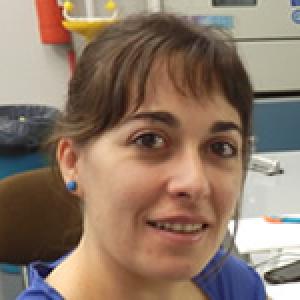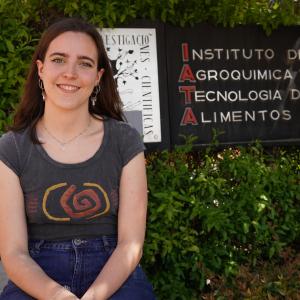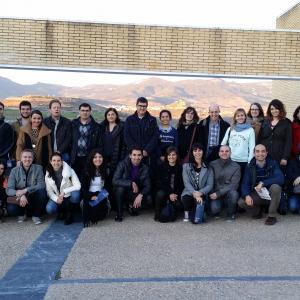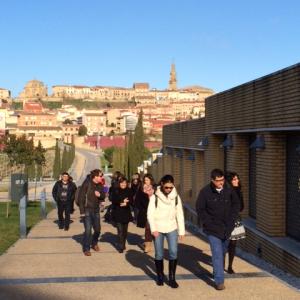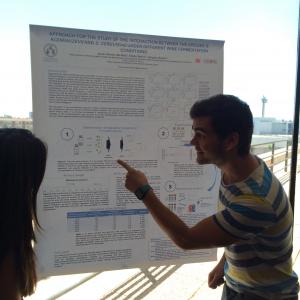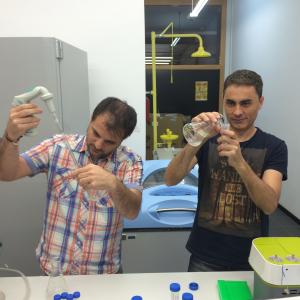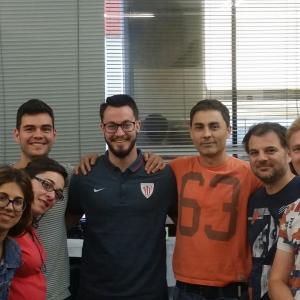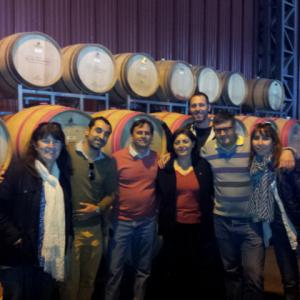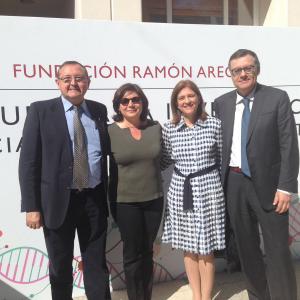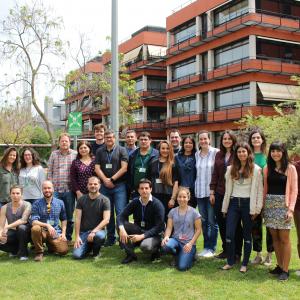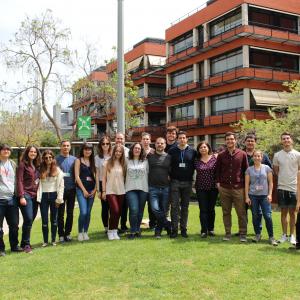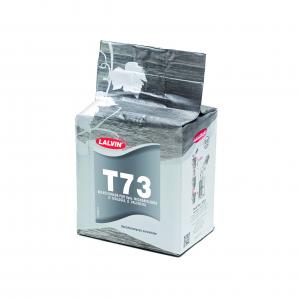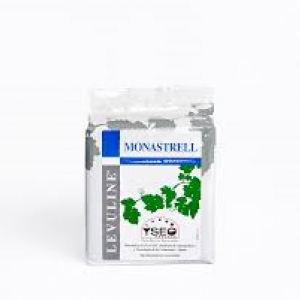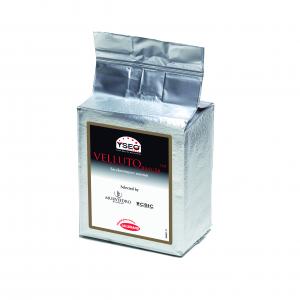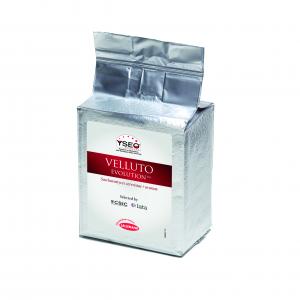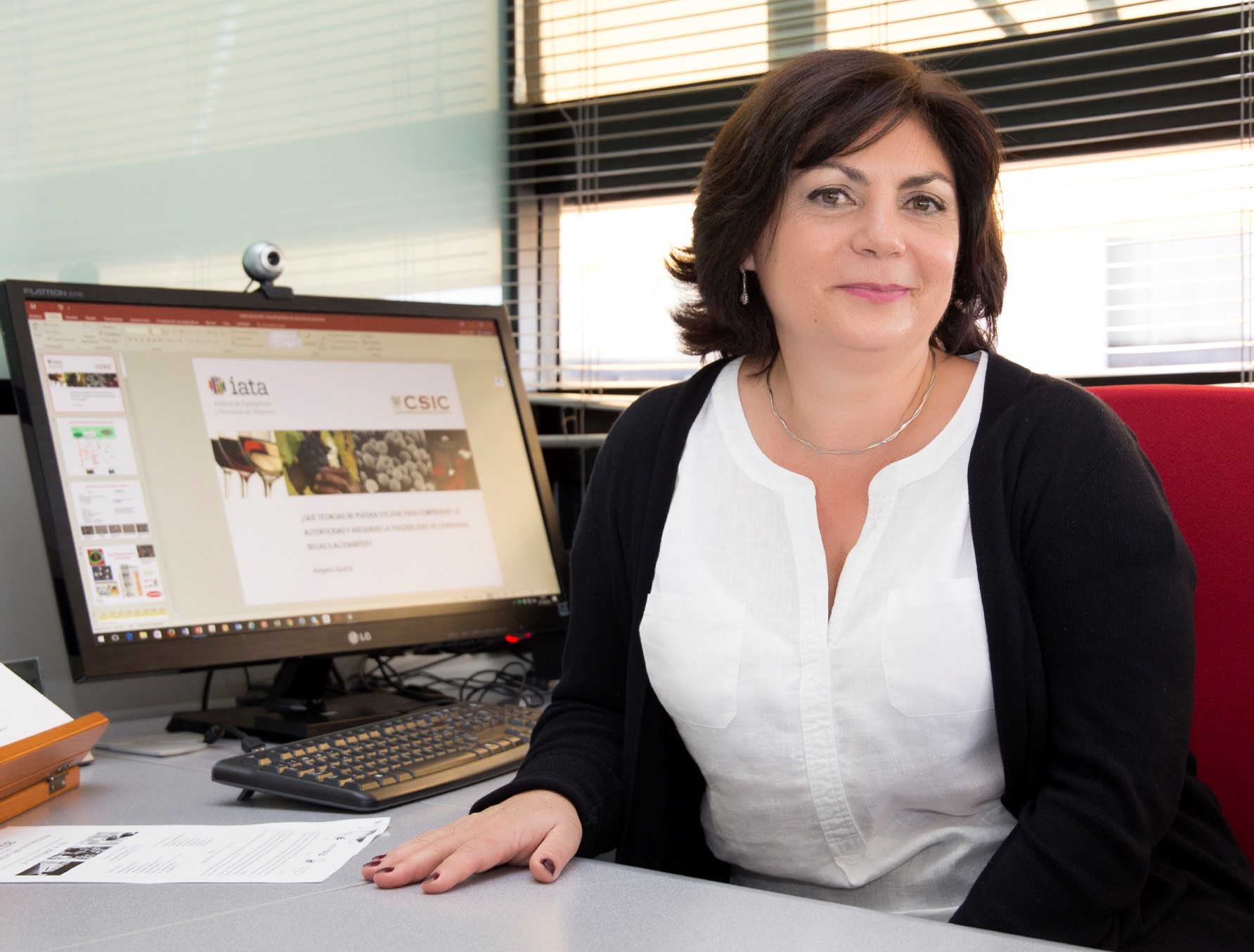
Biography
EDUCATION
1988 – 1992 University of Valencia, Valencia, Spain. PhD in Microbiology. Supervisors: Dr. Daniel Ramón and Dr. Tomás Huerta.
1988 University of Valencia, Valencia, Spain. MsC in Microbiology. Supervisors: Dr. Daniel Ramón and Dr. Tomás Huerta
1988 – 1992 University of Valencia, Valencia, Spain. BsC Biology.
RESEARCH POSITIONS
since 1995 Researcher (Since 2006 Full Research Professor), Department of Biotechnology, Instituto de Agroquímica y Tecnología de los Alimentos, CSIC, Spain
1993 – 1994 Postdoctoral Researcher, Prof. Michael G. Cumsky’s laboratory, Department of Molecular Biology and Biochemistry, University of California, Irvine, USA
INSTITUTIONAL RESPONSIBILITIES
since 2011 Director, Instituto de Agroquímica y Tecnología de los Alimentos, CSIC, Spain
2000 – 2004 Vice-director, Instituto de Agroquímica y Tecnología de los Alimentos, CSIC, Spain
TEACHING POSITIONS
since 1997 Assistant Professor, Department of Food Technology, University of Valencia, Spain
1998 – 1992 Teaching assistant, Department of Microbiology, University of Valencia, Spain
COMMISSIONS OF TRUST
2009 – 2013 Coordinator of Food Science and Technology Area, National Evaluation & Foresight Agency, Ministry of Economy and Competitiveness, Spain
2005 – 2009 Member Evaluation Committee in Food Technology, Ministry of Science, Spain
2009 – 2013 Scientific Advisor to the President of CSIC
since 2005 Member of the International Commission of Yeasts (ICY)
since 2006 Member of the Scientific Committee, Working Group Qualified Presumption of Safety-yeast, EFSA, EU
since 2001 Editorial Board of: FEMS Yeast Research, Antonie van Leeuwenhoek, Yeasts, International Journal of Food Microbiology.
ORGANISATION OF SCIENTIFIC MEETINGS
2013 Organizer. EMBO Conference - Comparative Genomics of Eukaryotic Microorganisms: Complexity Patterns in Eukaryotic Genomes. San Feliu de Guixols, Spain.
2009 Organizing committee. First Conference on: Comparative genomics of eukaryotic microorganisms (EMBO). San Feliu de Guixols, Spain.
2005 Organizing committee. XXIVth International Specialized Symposium on Yeasts.
MEMBERSHIPS OF SCIENTIFIC SOCIETIES
since 1989 Member, Spanish Society for Microbiology
2009-2013 President of the Specialized Group of Yeast and filamentous fungi of Spanish Microbiology Society (SEM)
RESEARCH INTEREST
Yeasts are responsible of many biotechnological processes, such as the production of fermented foods and beverages, biomass, ethanol, proteins, vitamins, pigments, and flavoring compounds. These yeasts of biotechnological interest are highly specialized organisms evolved to utilize their full potential under a variety of environments and ecological niches. We are interested in the study of the mechanisms involved in these processes of adaptation that have shaped the yeast genomes. Among other questions, we are currently working on three main topics:
(i) the development and application of molecular techniques for species identification and strain differentiation in yeasts of biotechnological interest (starters and spoilage yeasts).
(ii) the role of chromosomal rearrangements in yeast adaptation and speciation, and the acquisition of new gene functions of adaptive value through gene and genome duplication, interspecific hybridization and lateral gene transfer.
iii) Regulatory and metabolic studies of gene expression related to the molecular mechanisms of stress response in wine yeasts by omic analysis techniques and modeling
iv) The role of interspecific hybridization in generating yeasts better adapted to fermentation conditions.
v. The use of global analysis techniques (genomics, transcriptomics, proteomics, metabolomics, etc.) to understand the interaction of parental genomes present in the hybrids, which give them new properties of biotechnological interest
vi) The study of food yeasts as potential emerging pathogens: molecular basis of pathogenicity, comparative genomics and proteomics of pathogenic and non-pathogenic strains.
The results of this research are applicable to the following topics of interest to the industry:
1. Application of molecular techniques for the identification and characterization of yeast in fermentation processes.
2. Development of starter cultures for their use in alcoholic fermentations.
3. Breeding yeasts by non-GMO techniques such as directed evolution, intra and inter-specific hybridization as well as genetic engineering. These techniques are being applied for the improvement of industrial yeasts such as the increase of the glycerol production, the decrease of ethanol yield, tolerance to low temperatures, growth in nitrogen-limiting conditions, the production of fermentation aromas and the release of varietal scents.
Team
Projects
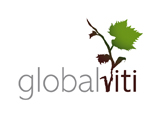

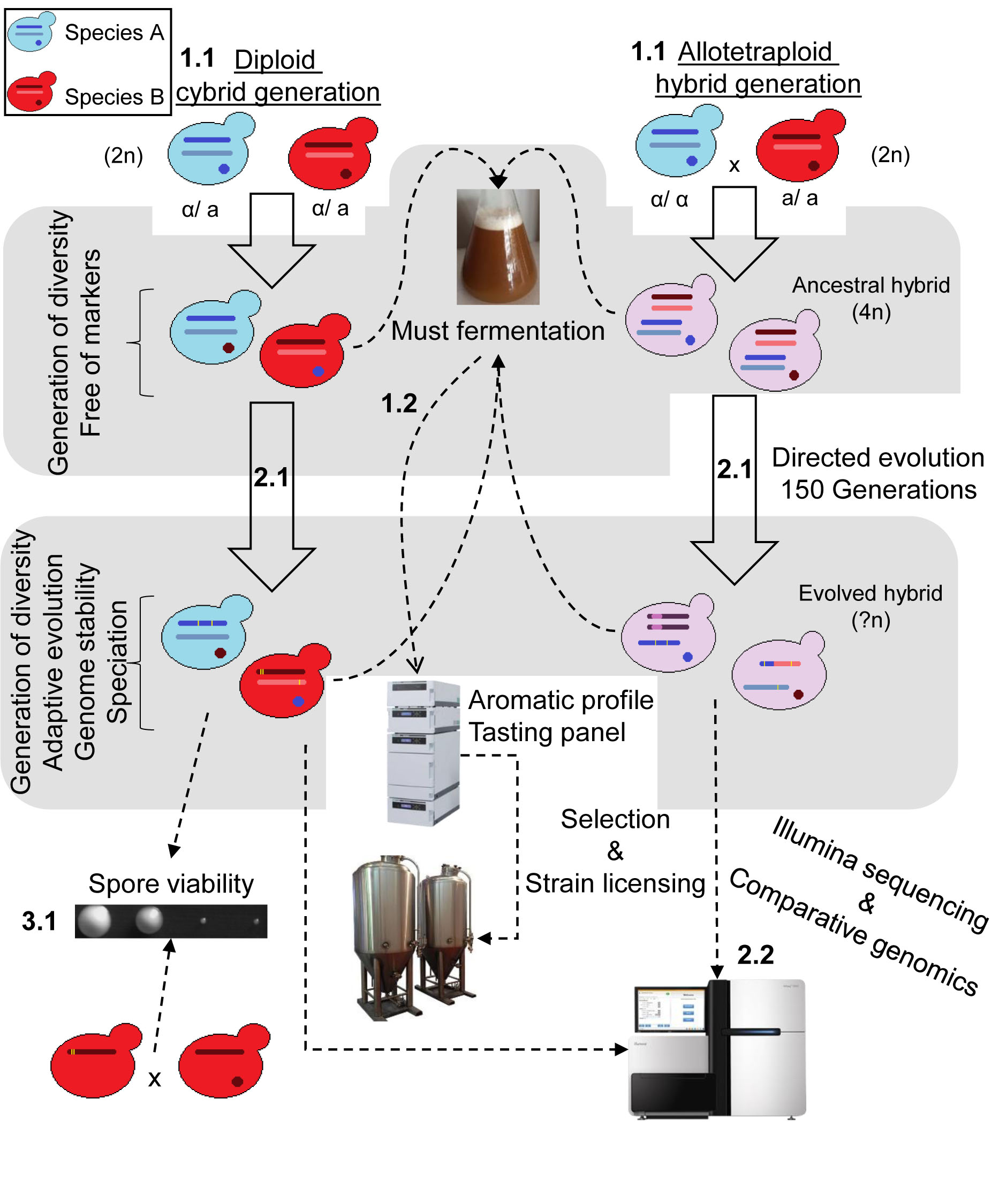
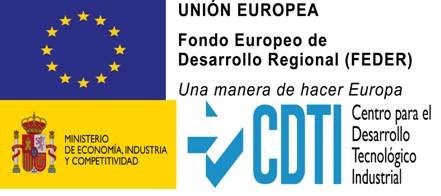
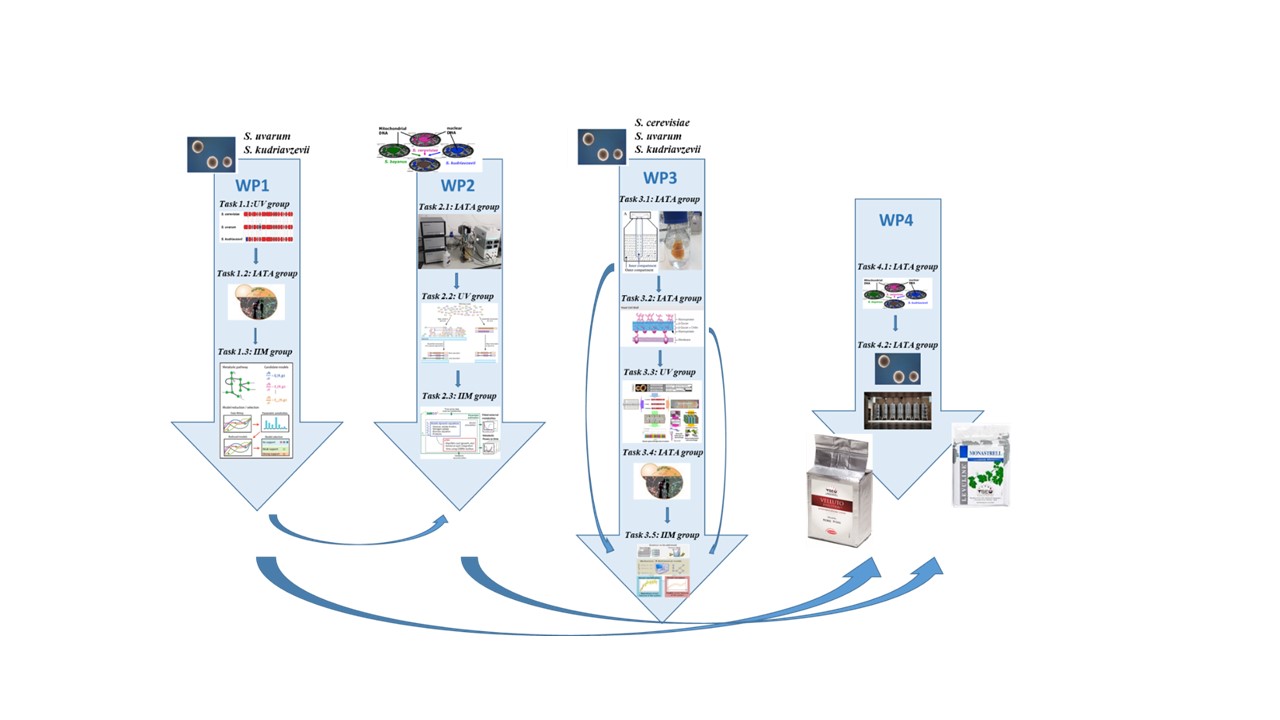
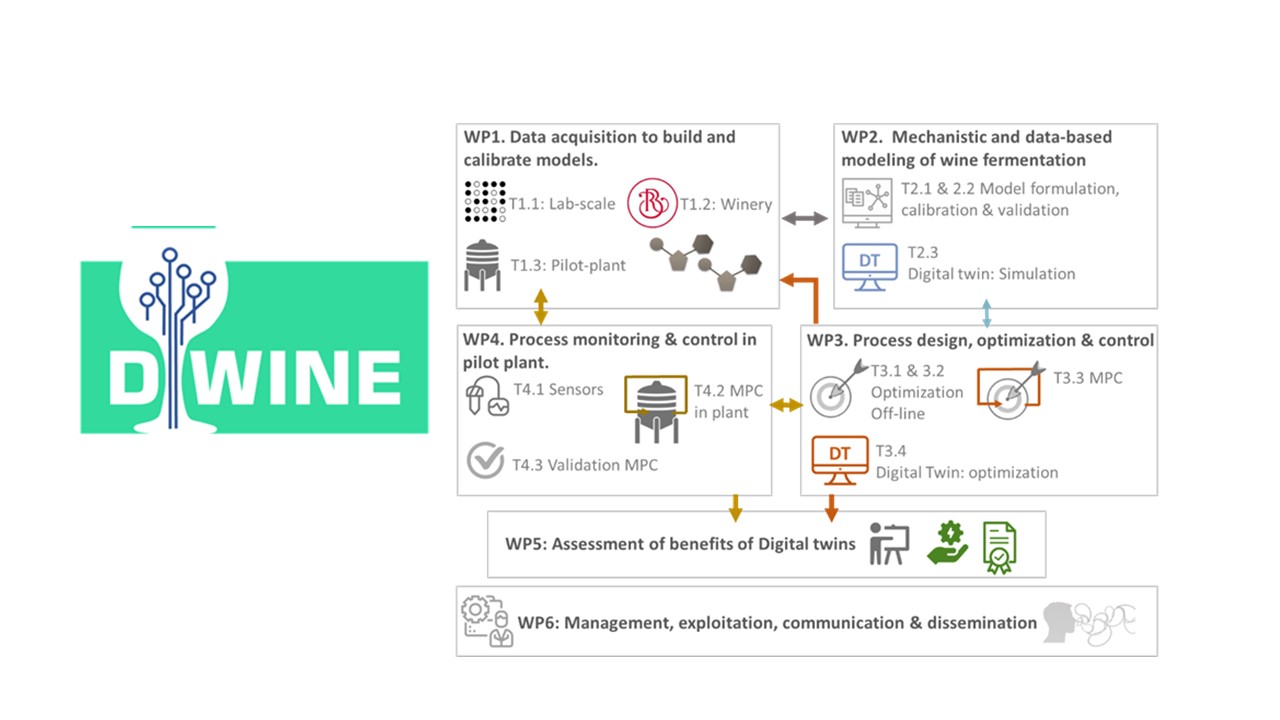

Publications
PUBLICATIONS (2016-2020)
1. Balsa-Canto E, Alonso-Del-Real J, Querol A. Mixed growth curve data do not suffice to fully characterize the dynamics of mixed cultures. Proc Natl Acad Sci U S A. 2019 Dec 24. pii: 201916774. doi: 10.1073/pnas.1916774117.
2. González Flores M, Rodríguez ME, Origone AC, Oteiza JM, Querol A, Lopes CA Saccharomyces uvarum isolated from patagonian ciders shows excellent fermentative performance for low temperature cidermaking. Food Res Int. 2019 Dec;126:108656. doi: 10.1016/j.foodres.2019.
3. Su Y, Seguinot P, Sanchez I, Ortiz-Julien A, Heras JM, Querol A, Camarasa C, Guillamón JM. Nitrogen sources preferences of non-Saccharomyces yeasts to sustain growth and fermentation under winemaking conditions. Food Microbiol. 2020 Feb;85:103287. doi: 10.1016/j.fm.2019.103287. Epub 2019 Aug 9. PubMed PMID: 31500707.
4. Vargas-Trinidad AS, Lerena MC, Alonso-Del-Real J, Esteve-Zarzoso B, Mercado LA, Mas A, Querol A, Combina M. Effect of transient thermal shocks on alcoholic fermentation performance. Int J Food Microbiol. 2020 Jan 2;312:108362. doi: 10.1016/j.ijfoodmicro.2019.108362. Epub 2019 Oct 18. PubMed PMID: 31669764.
5. González Flores M, Rodríguez ME, Origone AC, Oteiza JM, Querol A, Lopes CA. Saccharomyces uvarum isolated from Patagonian ciders shows excellent fermentative performance for low temperature cidermaking. Food Res Int. 2019 Dec;126:108656. doi: 10.1016/j.foodres.2019.108656. Epub 2019 Sep 2. PubMed PMID: 31732032.
6. Su Y, Gamero A, Rodríguez ME, Lopes CA, Querol A, Guillamón JM. Interspecific hybridisation among diverse Saccharomyces species: A combined biotechnological solution for low-temperature and nitrogen-limited wine fermentations. Int J Food Microbiol. 2019 Nov 16;310:108331. doi: 10.1016/j.ijfoodmicro.2019.108331. Epub 2019 Aug 27. PubMed PMID: 31479829.
7. Ortiz-Tovar G, Minebois R, Barrio E, Querol A, Pérez-Torrado R. Aroma production and fermentation performance of S. cerevisiae × S. kudriavzevii natural hybrids under cold oenological conditions. Int J Food Microbiol. 2019 May 16;297:51-59. doi: 10.1016/j.ijfoodmicro.2019.03.005. Epub 2019 Mar 12.
8. Alonso-Del-Real J, Pérez-Torrado R, Querol A, Barrio E. Dominance of wine Saccharomyces cerevisiae strains over S. kudriavzevii in industrial fermentation competitions is related to an acceleration of nutrient uptake and utilization. Environ Microbiol. 2019 May;21(5):1627-1644. doi: 10.1111/1462-2920.14536. Epub 2019 Mar 10.
9. Su Y, Origone AC, Rodríguez ME, Querol A, Guillamón JM, Lopes CA. Fermentative behaviour and competition capacity of cryotolerant Saccharomyces species in different nitrogen conditions. Int J Food Microbiol. 2019 Feb 16;291:111-120. doi: 10.1016/j.ijfoodmicro.2018.11.020. Epub 2018 Nov 22.
10. García-Ríos E, Guillén A, de la Cerda R, Pérez-Través L, Querol A, Guillamón JM. Improving the Cryotolerance of Wine Yeast by Interspecific Hybridization in the Genus Saccharomyces. Front Microbiol. 2019 Jan 8;9:3232. doi: 10.3389/fmicb.2018.03232. eCollection 2018.
11. Herman L, Chemaly M, Cocconcelli PS, Fernandez P, Klein G, Peixe L, Prieto M, Querol A, Suarez JE, Sundh I, Vlak J, Correia S. The qualified presumption of safety assessment and its role in EFSA risk evaluations: 15 years past. FEMS Microbiol Lett. 2019 Jan 1;366(1). doi: 10.1093/femsle/fny260.
12. Zemančíková J, Papoušková K, Peréz-Torrado R, Querol A, Sychrová H. Stl1 transporter mediating the uptake of glycerol is not a weak point of Saccharomyces kudriavzevii's low osmotolerance. Lett Appl Microbiol. 2019 Jan;68(1):81-86. doi: 10.1111/lam.13093. Epub 2018 Nov 22.
13. Su Y, Origone AC, Rodríguez ME, Querol A, Guillamón JM, Lopes CA. Fermentative behaviour and competition capacity of cryotolerant Saccharomyces species in different nitrogen conditions. Int J Food Microbiol. 2018 Nov 22;291:111-120. doi: 10.1016/j.ijfoodmicro.2018.11.020. [Epub ahead of print]
14. Pérez-Torrado R, Barrio E, Querol A. Alternative yeasts for winemaking: Saccharomyces non-cerevisiae and its hybrids. Crit Rev Food Sci Nutr. 2018 Jul 24;58(11):1780-1790. doi: 10.1080/10408398.2017.1285751. Epub 2017 Jun 12. Review.
15. Querol A, Pérez-Torrado R, Alonso-Del-Real J, Minebois R, Stribny J, Oliveira BM, Barrio E. New Trends in the Uses of Yeasts in Oenology. Adv Food Nutr Res. 2018;85:177-210. doi: 10.1016/bs.afnr.2018.03.002. Epub 2018 May 16.
16. Ortiz-Tovar G, Pérez-Torrado R, Adam AC, Barrio E, Querol A. A comparison of the performance of natural hybrids Saccharomyces cerevisiae × Saccharomyces kudriavzevii at low temperatures reveals the crucial role of their S. kudriavzevii genomic contribution. Int J Food Microbiol. 2018 Jun 2;274:12-19.
17. Navarro-Tapia E, Querol A, Pérez-Torrado R. Membrane fluidification by ethanol stress activates unfolded protein response in yeasts. Microb Biotechnol. 2018 May;11(3):465-475. doi: 10.1111/1751-7915.13032. Epub 2018 Feb 22.
18. Henriques D, Del Real Arias JA, Querol A, Balsa-Canto E. Wine fermentation by Saccharomyces cerevisiae and S. kudriavzevii dissected by predictive modeling. Front Microbiol. 2018 Feb 2;9:8
19. Navarro-Tapia E, Pérez-Torrado R, Querol A. Membrane fluidification by ethanol stress activates unfolded protein response in yeasts. Microb Biotechnol. 2018 May;11(3):465-475. doi: 10.1111/1751-7915.13032. Epub 2018 Feb 22.
20. Dibalova-Culakova H, Alonso-Del-Real J, Querol A, Sychrova H. Expression of heterologous transporters in Saccharomyces kudriavzevii: A strategy for improving yeast salt tolerance and fermentation performance. Int J Food Microbiol. 2018 Jan 5;268:27-34.
21. Origone AC, Rodríguez ME, Oteiza JM, Querol A, Lopes CA. Saccharomyces cerevisiae × Saccharomyces uvarum hybrids generated under different conditions share similar winemaking features. Yeast. 2018 Jan;35(1):157-171. doi: 10.1002/yea.3295.
22. Alonso-Del-Real J, Contreras-Ruiz A, Castiglioni GL, Barrio E, Querol A. The Use of Mixed Populations of Saccharomyces cerevisiae and S. kudriavzevii to Reduce Ethanol Content in Wine: Limited Aeration, Inoculum Proportions, and Sequential Inoculation. Front Microbiol. 2017 Oct 25;8:2087. doi: 10.3389/fmicb.2017.02087
23. Tronchoni J, García-Ríos E, Guillamón JM, Querol A, Pérez-Torrado R. Transcriptomic analysis of Saccharomyces cerevisiae x Saccharomyces kudriavzevii hybrids during low temperature winemaking. Version 3. F1000Res. 2017 May 15;6:679. doi: 10.12688/f1000research.11550.3
24. Peris D, Pérez-Torrado R, Hittinger CT, Barrio E, Querol A. On the origins and industrial applications of Saccharomyces cerevisiae x Saccharomyces kudriavzevii hybrids. Yeast. 2017 Oct 12. doi: 10.1002/yea.3283.
25. Boix-Amorós A, Martinez-Costa C, Querol A, Collado MC, Mira A. Multiple Approaches Detect the Presence of Fungi in Human Breastmilk Samples from Healthy Mothers. Sci Rep. 2017 Oct 12;7(1):13016. doi: 10.1038/s41598-017-13270.
26. Pérez-Torrado R, Querol A. Saccharomyces cerevisiae show low levels of traversal across human endothelial barrier in vitro. Version 2. F1000Res. 2017 Jun 20; 6:944. doi: 10.12688/f1000research.
27. Ibáñez C, Pérez-Torrado R, Morard M, Toft C, Barrio E, Querol A. RNAseq-based transcriptome comparison of Saccharomyces cerevisiae strains isolated from diverse fermentative environments. Int J Food Microbiol. 2017 Sep 18;257:262-270. doi: 10.1016/j.ijfoodmicro.2017.07.001.
28. Pérez-Torrado R, Barrio E, Querol A. Alternative yeasts for winemaking: Saccharomyces non-cerevisiae and its hybrids. Crit Rev Food Sci Nutr. 2017 Mar 31:1-11. doi: 10.1080/10408398.2017.1285751.
29. Navarro-Tapia E, Pérez-Torrado R, Querol A. Ethanol Effects Involve Non-canonical Unfolded Protein Response Activation in Yeast Cells. Front Microbiol. 2017 Mar 7;8:383. doi: 10.3389/fmicb.2017.00383.
30. Pérez-Torrado R, Rantsiou K, Perrone B, Navarro-Tapia E, Querol A, Cocolin L. Ecological interactions among Saccharomyces cerevisiae strains: insight into the dominance phenomenon. Sci Rep. 2017 Mar 7;7:43603. doi: 10.1038/srep43603.
31. Alonso-Del-Real J, Lairón-Peris M, Barrio E, Querol A. Effect of Temperature on the Prevalence of Saccharomyces Non cerevisiae Species against a S. cerevisiae Wine Strain in Wine Fermentation: Competition, Physiological Fitness, and Influence in Final Wine Composition. Front Microbiol. 2017 Feb 7;8:150. doi: 10.3389/fmicb.2017.00150.
32. Peris D, Arias A, Orlić S, Belloch C, Pérez-Través L, Querol A, Barrio E. Mitochondrial introgression suggests extensive ancestral hybridization events among Saccharomyces species. Mol Phylogenet Evol. 2017 Mar;108:49-60. doi: 10.1016/j.ympev.2017.02.008.
33. Rodríguez ME, Pérez-Través L, Sangorrín MP, Barrio E, Querol A, Lopes CA. Saccharomyces uvarum is responsible for the traditional fermentation of apple chicha in Patagonia. FEMS Yeast Res. 2017 Jan 1;17(1). doi: 10.1093/femsyr/fow109.
34. Pérez-Través L, Querol A, Pérez-Torrado R. Increased mannoprotein content in wines produced by Saccharomyces kudriavzevii×Saccharomyces cerevisiae hybrids. Int J Food Microbiol. 2016 Nov 21;237:35-38. doi: 10.1016/j.ijfoodmicro.2016.08.014.
35. Stribny J, Querol A, Pérez-Torrado R. Differences in Enzymatic Properties of the Saccharomyces kudriavzevii and Saccharomyces uvarum Alcohol Acetyltransferases and Their Impact on Aroma-Active Compounds Production. Front Microbiol. 2016 Jun 7;7:897. doi: 10.3389/fmicb.2016.00897.
36. García-Ríos E, Querol A, Guillamón JM. iTRAQ-based proteome profiling of Saccharomyces cerevisiae and cryotolerant species Saccharomyces uvarum and Saccharomyces kudriavzevii during low-temperature wine fermentation. J Proteomics. 2016 Sep 2;146:70-9. doi: 10.1016/j.jprot.2016.06.023.
37. Pérez-Torrado R, Oliveira BM, Zemančíková J, Sychrová H, Querol A. Alternative Glycerol Balance Strategies among Saccharomyces Species in Response to Winemaking Stress. Front Microbiol. 2016 Mar 31;7:435. doi: 10.3389/fmicb.2016.00435.
38. Stribny J, Romagnoli G, Pérez-Torrado R, Daran JM, Querol A. Characterisation of the broad substrate specificity 2-keto acid decarboxylase Aro10p of Saccharomyces kudriavzevii and its implication in aroma development. Microb Cell Fact. 2016 Mar 12;15:51. doi: 10.1186/s12934-016-0449-z.
39. Navarro-Tapia E, Nana RK, Querol A, Pérez-Torrado R. Ethanol Cellular Defense Induce Unfolded Protein Response in Yeast. Front Microbiol. 2016 Feb 18;7:189. doi: 10.3389/fmicb.2016.00189.
40. Pérez-Torrado R, Querol A. Opportunistic Strains of Saccharomyces cerevisiae: A Potential Risk Sold in Food Products. Front Microbiol. 2016 Jan 8;6:1522. doi: 10.3389/fmicb.2015.01522.
41. Peris D, Pérez-Través L, Belloch C, Querol A. Enological characterization of Spanish Saccharomyces kudriavzevii strains, one of the closest relatives to parental strains of winemaking and brewing Saccharomyces cerevisiae × S. kudriavzevii hybrids. Food Microbiol. 2016 Feb;53(Pt B):31-40. doi: 10.1016/j.fm.2015.07.010.
42. Pérez-Través L, Lopes CA, Barrio E, Querol A. Stabilization process in Saccharomyces intra and interspecific hybrids in fermentative conditions. Int Microbiol. 2014 Dec;17(4):213-24. doi: 10.2436/20.1501.01.224.
Patents
- Request number:P200800286. Nº PUBLICACIÓN: ES2330709 B1Title:Microorganismo fermentador productor de altas concentraciones de glicerol y sus aplicaciones en la producción de bebidas alcohólicas / vino. Nombre comercial "Velluto BMV58", comercializada por LallemandDate of the request:Monday, 13 June, 2011
- Request number:Levadura vínica comercializada con el nombre Lalvin T73 por la empresa LallemandTitle:Primera levadura vínica seleccionada en España
- Request number:Un híbrido de la levadura comercial Velluto BMV58 tolerante al etanol y que produce mayores cantidades de glicerol, menor rendimiento de etanol y aumenta la acidez y el aroma del vino, que resuelve los problemas asociados con el cambio climáticoTitle:Nombre comercial “Velluto Evolution”, comercializada por la empresa Lallemand
- Request number:Levadura vínica altamente tolerante al etanol, y muy útil en mostos con alto contenido de azúcar, necesario para resolver problemas tecnólogicos asociados con el cambio climáticoTitle:Nombre comercial "Monastrell", comercializada por la empresa Lallemand




